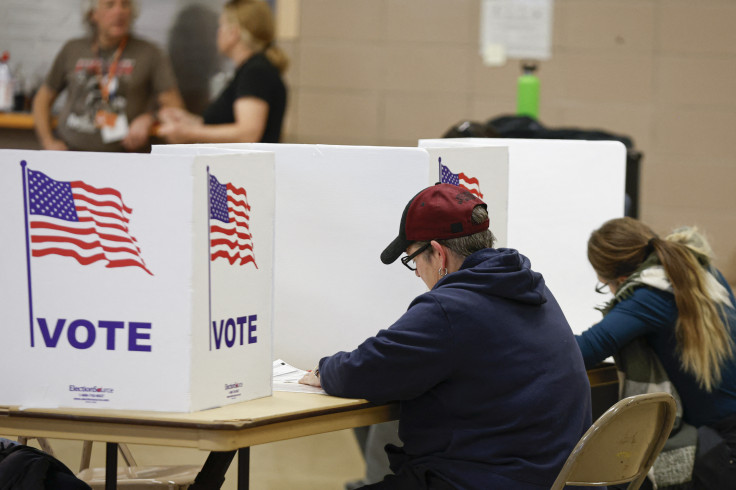
A new exit poll shows that Donald Trump won 46% of the Latino vote in Michigan, further illustrating a historic level of support for a Republican presidential candidate among Latino voters nationwide.
Trump's appeal to Latino male voters in particular contributed significantly to this outcome, according to Edison Research, With 55% of them casting their ballots for Trump, surpassing the previous high mark of 44% set by George W. Bush in 2004.It also compares to 38% of votes among Latinas on this election.
The data reflects a major shift in Latino voting patterns, as economic concerns appear to have outweighed past criticism and Trump's rhetoric on immigration. In contrast, Vice President Kamala Harris ultimately secured only 39% of Michigan's Latino vote — a drop that echoed across the country, where Democrats posted their lowest Latino support in 20 years, as reported by Axios.
University of Houston political science professor Jeronimo Cortina said the Democratic Party struggled to connect with Latino voters on economic issues, a gap Trump capitalized on through focused messaging. "Latinos were saying, 'I don't care what Trump says. I want to be able to pay the bills. I want to be able to send my kid to college,'" Cortina explained, pointing to the practicality driving many voters' choices.
Trump's gains with Latino voters were visible not only in Michigan but also in other key swing states, such as North Carolina and Nevada, where he and Harris were tied among Latino voters. This trend extended into South Texas, traditionally a Democratic stronghold. In Hidalgo County, for example, Trump won 51% of the Latino vote, reversing a strong Democratic lead from 2020 when Joe Biden won 58% there. Similarly, in Cameron County, Trump edged out Harris 53-47, after Biden took the county by a sizable margin four years earlier.
Andrew Smith, a political science professor at the University of Texas Rio Grande Valley, said many South Texans found Trump's economic and immigration policies more aligned with their values, particularly among the region's socially conservative Latino voters. "What you're seeing nationally is something that's been going on in South Texas for years," Smith said, noting that some Latino voters view expanded social safety nets as incompatible with their own work ethics and experiences.
Álvaro J. Corral, also a professor at UT Rio Grande Valley, described the shift as a "structural challenge" for Democrats, highlighting economic factors as a primary influence. "Even inflation that's trending downward is still not good," he said, observing that economic hardship has hit working-class Latinos especially hard.
Nationwide, some exit polls showed that Trump's share of the Latino vote surged from 32% in the 2020 elections to 45% in 2024. Not only did Trump make inroads with Latinos, but Democrats lost a considerable share of voters in the demographic compared to previous elections.
© 2025 Latin Times. All rights reserved. Do not reproduce without permission.


